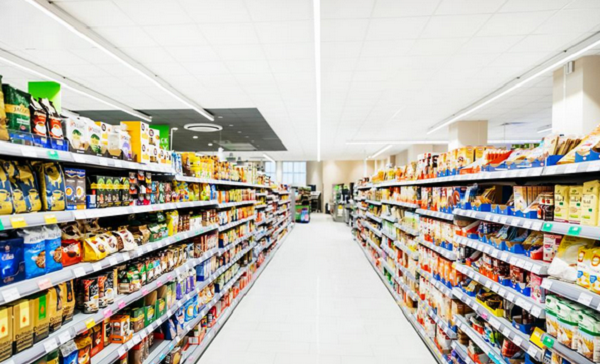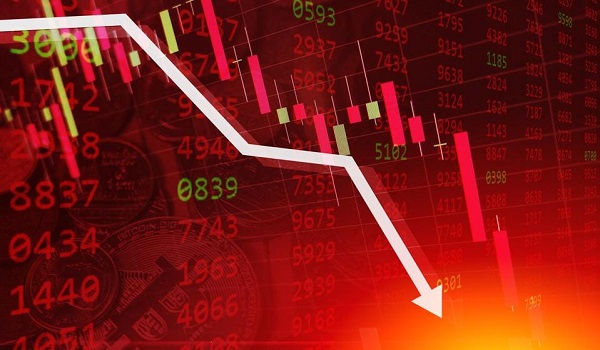Canada will scale up retaliation against U.S. tariffs as needed
Everything from American meat, dairy, chocolate, wine, booze, cosmetics, clothing, wood and tobacco products to guns and ammunition is about to get more expensive in Canada.
But not Tesla, the electric car produced by U.S. President Donald Trump’s close adviser Elon Musk. Not yet.
Canada’s initial counterpunch aimed at Trump’s whopping 25 per cent tariffs on Canadian products amounts to a sharp jab at $30 billion worth of American imports, and a hook to come three weeks from now that will aim at another $125 billion worth of American products.
The Liberal government is slapping 25 per cent counter-tariffs on things like Florida juice, fruit and vegetables; South Carolina- and Ohio-made appliances; motorcycles from Pennsylvania — where Harley-Davidson’s main production plant is located — and all U.S. coffee exports, officials said during a background technical briefing.
With its first move, the Trudeau government has not aimed a knockout punch: it doesn’t apply to the full range of about $600 billion in American imports to this country — unlike what Trump has done. And Ottawa is not applying higher prices or export tariffs to Canadian energy shipments to the U.S.
But a tariff war that economists and business leaders warn will have a devastating impact on Canadian businesses and workers kicks off Tuesday as Canada published a detailed showing how it will penalize 1,256 American products.
Mexico warned it too will hit America with unspecified retaliatory counter-tariffs and nontariff countermeasures, and U.S. Democrats appealed to Trump to halt the trade war.
Restaurants Canada is already begging for an exemption for food products, saying the $120-billion food service industry “is the fourth largest employer in the country, employing 1.2 million people across small and medium-sized businesses” and cannot absorb more cost increases.
For now, the Canadian government is trying to use a scalpel, not a sledgehammer to apply pain to politically sensitive products coming from states where Republican lawmakers or influencers might be mobilized to persuade Trump to reverse course. If that is even possible.
If it isn’t possible, Finance Minister Dominic LeBlanc told the Star, Canada will scale up its response to Trump’s tariffs as needed and is not backing down despite the U.S. president’s threat to escalate penalties against Canada if Ottawa retaliates.
LeBlanc’s immediate plan is to target consumer and household goods that represent chunks of the American import market in Canada, as Ottawa tries to spread the pain without unduly burdening any one region, sector or province, federal officials said.
It will allow Canadian importers to apply to have the duties temporarily waived “in certain exceptional circumstances,” say, if the listed goods are key inputs to Canadian manufacturers that can’t be found domestically or from non-U.S. suppliers.
The senior Canadian officials, who spoke on condition they not be identified, would not say how much revenue the Canadian counter-tariffs would raise, noting that an emerging push to “Buy Canadian” driven by premiers and business leaders could cause consumer behavioural shifts that change what might be expected, which theoretically is about $38 billion in counter-tariff revenue collected on $155 billion worth of American imports.
Meanwhile, Ottawa will pursue any legal recourse it has under the United States-Mexico-Canada Agreement (USMCA) which entrenched tariff-free North American free trade, and will try to challenge Trump’s duties that the federal government says are illegal and unjustified under that deal and World Trade Organization rules.
But nobody’s kidding themselves that the revised NAFTA deal that Trump signed in 2018 offers any immediate remedy for the economic pain to come in Canada.
Canadian officials declined to say just how much of an economic hit Ottawa anticipates, saying with all his different declarations over the past two months, they had not modelled the exact scenario Trump laid out — 25 per cent surcharges on all Canadian goods with a lower 10 per cent levy on Canadian oil and gas.
They pointed only to estimates south of the border that Trump’s tariffs could lead to a 1.7 per cent reduction in America’s own economic activity. Some Canadian economists have projected a hit of up to 3 per cent on Canada’s gross domestic product.
In an interview Sunday, LeBlanc said, “If these (U.S.) tariffs are still around weeks and months from now, and if it’s an ongoing economic turbulence, then we’ll look at other additional measures, including nontariff measures, but it’s a proportionate response that will be scaled up, as we see where the Canadian economy is over the next number of weeks.”
The Trudeau government has not ruled out additional measures such as higher costs for energy permits or fees that would make Canadian energy exports more costly for American businesses. But LeBlanc said Canada is not looking at turning off any taps or cutting off the flow of any energy shipments.
LeBlanc declined to comment on Trump’s social media taunts Sunday, saying it is not “constructive for us to respond to every social media post that the president makes.”
“Our job is to, in this particular moment, figure out what’s the appropriate response, to convince the Americans that it’s not in their economic interest to continue this.”
Trump wrote Sunday on his platform Truth Social that without being able to sell energy, cars and lumber into the U.S., “Canada ceases to exist as a viable Country. Harsh but true! Therefore, Canada should become our Cherished 51st State. Much lower taxes, and far better military protection for the people of Canada — AND NO TARIFFS!”
The U.S. president rejected critics, including in mainstream American media, that warned his moves will hurt American businesses and consumers who will have to pay the price of his surcharges on Canadian products.
In capital letters, Trump wrote, “Will there be some pain? Yes, maybe. (And maybe not!) But we will make America great again, and it will all be worth the price that must be paid.”
LeBlanc said the federal government will support the companies and workers Trump is targeting, saying a “number of measures” are already in place, including the employment insurance program, that can be adjusted very quickly to respond to the impact of a trade war. Critics say the EI program is ill-suited for this kind of crisis.
“If the issue is liquidity for businesses (or) access cash flow for businesses, we can consider things like deferring tax payments,” said LeBlanc. “There are a number of authorities we have with Crown corporations, Business Development Bank, Export Development Canada, to put additional liquidity or supports into the economy.”
LeBlanc called them “built-in shock absorbers” that follow economic adjustments on an ongoing basis.
LeBlanc said that Ottawa is not instructing or co-ordinating moves by provinces like Ontario, Nova Scotia, B.C. and Manitoba — which all announced Sunday that they are yanking U.S. alcohol products off their provincial liquor store shelves.
Progressive Conservative leader Doug Ford said, “Every year, LCBO sells nearly $1 billion worth of American wine, beer, spirits and seltzers. Not anymore.”
“Starting Tuesday, we’re removing American products from LCBO shelves. As the only wholesaler of alcohol in the province, LCBO will also remove American products from its catalogue so other Ontario-based restaurants and retailers can’t order or restock U.S. products.”
Ford urged customers to buy Ontario-made products instead and to “drink responsibly.”
Conservative leader Pierre Poilievre at a news conference Sunday shifted to take a harder line on the U.S., and condemned Trump’s “massive, unjust and unjustified tariffs,” challenging the Trump administration to explain the uneven treatment of China which faces “only a 10 per cent tariff.”
“Even if you believe in tariffs,” Poilievre said, “in what strategic mindset does that make sense if it’s to do with fentanyl. Fentanyl is coming from China. It’s killing our people too.”
Poilievre supports dollar-for-dollar retaliatory counter-tariffs on products where Canadians can find replacements, and identified steel and aluminum for counter-tariffs, saying those products are made in Canada. He demanded all counter-tariff revenue be poured into aiding businesses and workers, an immediate tax cut to help businesses through the crisis, and the elimination of interprovincial trade barriers, to boost Canada’s economy.
The Conservatives and the NDP have called on Trudeau to immediately recall Parliament to deal with the crisis.
NDP leader Jagmeet Singh again called on the federal government to “cut off the supply of critical minerals to the United States.”
Prime Minister Justin Trudeau said Saturday he is weighing “several nontariff measures, including some relating to critical minerals, energy, procurement and other partnerships.”
Months ago, Trudeau said his job was to work in Canada’s interests even if they diverged from Mexico’s. Now he is looking to enlist allies. Trudeau spoke Saturday to Mexican President Claudia Sheinbaum.
A readout from the Prime Minister’s Office that summarized their conversation said they spoke about “their respective efforts to enhance border security and combat the production and distribution of illegal drugs. The leaders agreed to continue working together in areas of common interest and to enhance the strong bilateral relations between Canada and Mexico.”
This article was first reported by The Star












